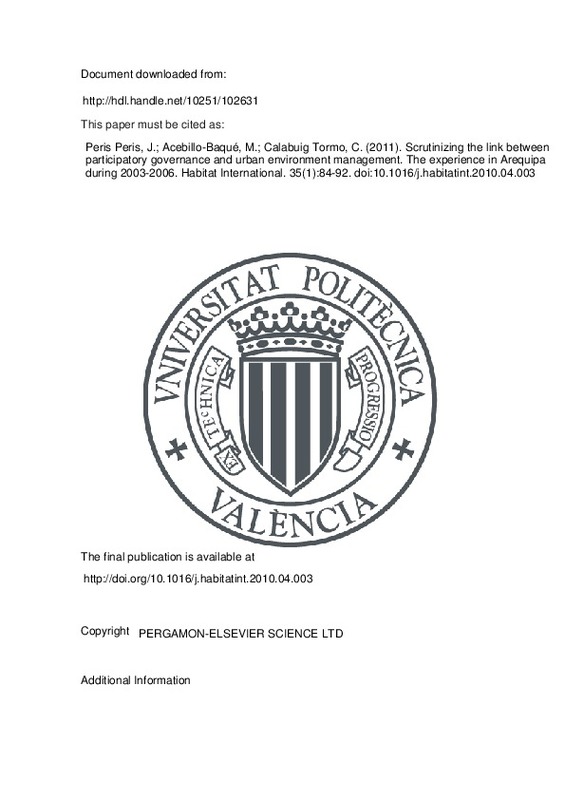JavaScript is disabled for your browser. Some features of this site may not work without it.
Buscar en RiuNet
Listar
Mi cuenta
Estadísticas
Ayuda RiuNet
Admin. UPV
Scrutinizing the link between participatory governance and urban environment management. The experience in Arequipa during 2003-2006
Mostrar el registro completo del ítem
Peris Peris, J.; Acebillo-Baqué, M.; Calabuig Tormo, C. (2011). Scrutinizing the link between participatory governance and urban environment management. The experience in Arequipa during 2003-2006. Habitat International. 35(1):84-92. https://doi.org/10.1016/j.habitatint.2010.04.003
Por favor, use este identificador para citar o enlazar este ítem: http://hdl.handle.net/10251/102631
Ficheros en el ítem
Metadatos del ítem
| Título: | Scrutinizing the link between participatory governance and urban environment management. The experience in Arequipa during 2003-2006 | |||
| Autor: | Acebillo-Baqué, Míriam | |||
| Entidad UPV: |
|
|||
| Fecha difusión: |
|
|||
| Resumen: |
[EN] This paper conceptualises participatory governance as a process of deepening local democracy through the opening of new spaces for civil society and citizens' participation. It explores the link with the urban environment ...[+]
|
|||
| Palabras clave: |
|
|||
| Derechos de uso: | Reconocimiento - No comercial - Sin obra derivada (by-nc-nd) | |||
| Fuente: |
|
|||
| DOI: |
|
|||
| Editorial: |
|
|||
| Versión del editor: | http://doi.org/10.1016/j.habitatint.2010.04.003 | |||
| Agradecimientos: |
|
|||
| Tipo: |
|







![[Cerrado]](/themes/UPV/images/candado.png)


